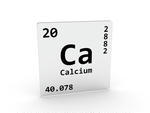Top 7 Things Women Should Know About Calcium by Your Marque Team
 With health crazes at an all time high, it is easy to be misguided by the potential benefits of supplements outside of your regular diet. While calcium is vital to growing bones, women should take caution as they age not to supplement low and medium doses of calcium, which can reportedly lead to adverse health concerns.
With health crazes at an all time high, it is easy to be misguided by the potential benefits of supplements outside of your regular diet. While calcium is vital to growing bones, women should take caution as they age not to supplement low and medium doses of calcium, which can reportedly lead to adverse health concerns.
Top 7 Things Women Should Know About Calcium
Since a young age we’ve been told that calcium is the key to bone growth and healthy bodies. But what about after we’re grown? Women in particular should be aware of the changes that take place in their bodies over the years. Here are 7 key facts every woman should know about calcium and their health.
1. What happens if you don’t get enough calcium?
Campaigns like the “Got Milk” ads have helped bring understanding that when you’re not getting enough calcium, you’ll feel the effects in the long term. Low bone mass is one consequence which increases your risk for osteoporosis and bone fractures.
2. Are genetics a risk factor?
Some women are higher risk for osteoporosis and should be more conscientious of their calcium intake. Older adults, women, those of Asian and white descent, as well as those with smaller body frames are those most at risk for osteoporosis.
3. How much calcium should I take?
Sufficient calcium intake can slow the rate of bone loss. Understanding how to use calcium to your advantage can help slow your risk of deterioration and osteoporosis. Determining your bone mass and calcium levels can be diagnosed at your local health provider.
4. What’s the most natural way to receive calcium?
It’s best to get your calcium from your diet. Adults tend to look at supplements as an easy way to get their daily values, but if you’re already consuming a calcium rich diet, odds are you don’t even need a supplement. Simple dietary changes can help women to reach their goals through healthy foods.
5. Which foods provide calcium?
Dairy such as milk, yogurt and cheese are among the most obvious choices, but kale, broccoli and some soft boned fish can also be great sources.
6. What if I don’t consume enough calcium?
If you can’t get all of your calcium from your regular diet, find quality calcium supplements that work for you. Calcium carbonate is best when taken with food, while calcium citrate absorbs well on either an empty or full stomach. Gluconate, lactate and phosphate are additional forms that can be beneficial. On average, the body can’t absorb more than 500 or 600 mg of calcium at a time. It’s advised to spread your intake throughout your daily diet.
7. Is it possible to take too many over-the-counter calcium supplements?
Calcium can interact and interfere with other medications or supplements. Calcium can interfere with the absorption antibiotics, making them less effective or even counter their overall effects. Aside from affecting the absorption of other important minerals or medications, too much calcium from dietary supplements can cause other serious health risks if not administered properly.
antibiotics, making them less effective or even counter their overall effects. Aside from affecting the absorption of other important minerals or medications, too much calcium from dietary supplements can cause other serious health risks if not administered properly.
The information provided is for general interest only and should not be misconstrued as a diagnosis, prognosis or treatment recommendation. This information does not in any way constitute the practice of medicine, or any other health care profession. Readers are directed to consult their health care provider regarding their specific health situation. Marque Medical is not liable for any action taken by a reader based upon this information.
